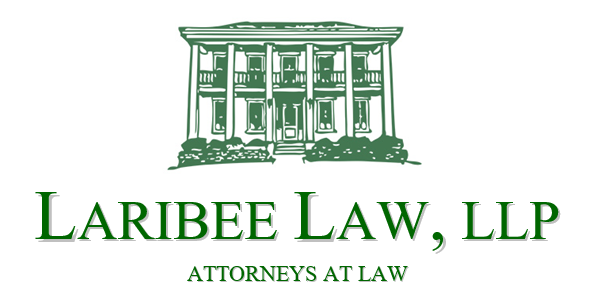Advantages to Probate Court Administration
Michael L. Laribee, Esq.
Most estate planning clients say they would like their estates to avoid probate court when they die. This is not surprising as many television infomercials and estate planning books tell people to avoid a probate administration at all costs. There is certainly merit to this opinion. However, probate court does provide several advantages which people often overlook.
What is a probate administration? Simply, it is the process whereby a probate court assigns a representative (an executor or administrator) to gather and list the decedent's assets, pay all outstanding debts, bills and taxes, and then distribute the remaining assets to the beneficiaries listed in the decedent’s will.
There are three main complaints about probate court: it takes longer (full probate estates usually take at least six months or more to administer), it costs more (the estate will incur court costs and possibly attorney fees), and it is not private (the estate administration is public record and people can view the will, the value of estate assets, and the distributions to the beneficiaries). Certainly, these are valid reasons to create an estate plan that distributes assets to beneficiaries outside of probate court (using transfer-on-death beneficiary designations, joint ownership with rights of survivorship, or trusts). However, it is important to consider the following positive aspects of probate court:
1. The probate court will make sure the executor honors the decedent’s wishes and follows the provisions of the decedent’s last will and testament precisely.
2. The beneficiaries will receive copies of all important filings through a formal, systematic process overseen by a judge or magistrate.
3. The probate court monitors all actions of an executor.
4. The executor cannot engage in self-dealing or play favorites among beneficiaries.
5. All beneficiaries and next of kin must be notified and will have an opportunity to be heard in court regarding the validity of the decedent’s last will and testament.
6. The probate court may require an executor to obtain an insurance bond to protect the estate assets from loss or misappropriation.
7. The executor must file and provide to beneficiaries a complete list of all estate assets and their values known as an inventory.
8. The beneficiaries may object to the list of estate assets and the probate court can settle disputes related to the inclusion or exclusion of certain assets in the estate.
9. The probate court can resolve disagreements among family members through hearings or mediation proceedings.
10. The beneficiaries will receive clear title to the assets they receive and proof of the current market value for tax purposes.
11. An executor has the power to make funeral arrangements.
12. An executor must pay decedent’s debts before the assets are administered to beneficiaries.
13. An executor must file decedent’s tax returns and pay taxes due.
14. Before the estate is closed, the executor must complete a detailed accounting of all assets received, property sold, bills paid, and funds disbursed. Beneficiaries have an opportunity to object to the accounting.
It is important to consult with a trusted attorney and explore options when creating an estate plan. While it may be contrary to popular opinion, some people actually prefer the oversight that probate court provides. The attorneys of Laribee Law, LLP are here to assist you.
Michael Laribee is a partner in the Medina law firm of Laribee Law, LLP. This article is intended to provide general information about the law. It is not intended to give legal advice. Readers are urged to seek advice from an attorney regarding their specific issues and rights.

